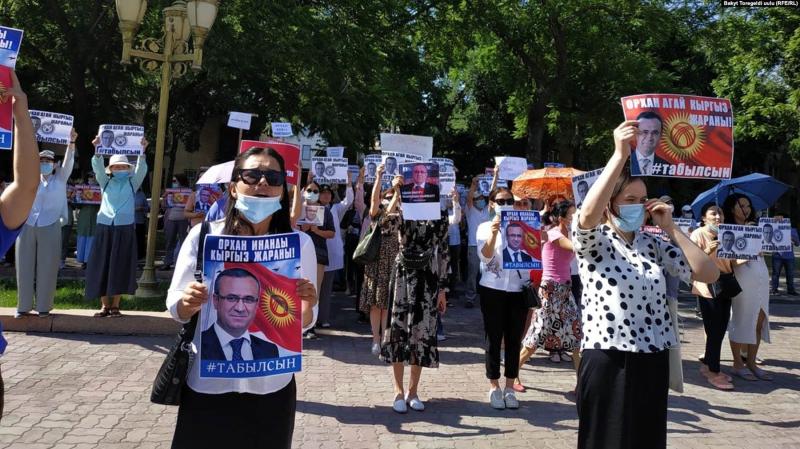The disappearance of a Turkish teacher in Kyrgyzstan, on June 1, was a reminder that the long arm of Turkey’s secret services continues to reach and abduct scores of the country’s citizens abroad.
The kidnappings and forced renditions over the last five years have mostly targeted suspected supporters of Fethullah Gulen, the Muslim preacher whom Turkish President Recep Tayyip Erdogan blames for a failed coup against him in 2016.
Turkey has boasted that its secret service masterminded some of the cloak and dagger operations, with the justice minister saying 107 “traitors” had been captured abroad by 2019.
A report earlier this year by Freedom House maintained Erdogan has pursued his “perceived enemies in at least 31 different countries.”
Before Gulen became Erdogan’s arch-enemy, the elderly US-based cleric, who denies any part in the coup, was one of his closest and most powerful allies.
Gulen’s worldwide network of schools was once an important part of Turkish soft power abroad. It was just such a link that this month saw the latest overseas abduction.
Orhan Inandi, a Turkish-born Kyrgyz citizen who used to head a network of Gulen-linked schools in Kyrgyzstan, went missing on June 1. His car was found near his home with the door open, tyres flat and with the teacher’s phone and jacket still inside.
While around a thousand members of Kyrgyz security forces searched for him, his wife claimed he was being held inside the Turkish consulate in Bishkek. However, even as hundreds of protestors gathered in Bishkek, the Kyrgyz capital, their country’s president Sadyr Japarov was visiting Erdogan in Ankara on Wednesday and agreeing that the Gulen movement “poses a national security threat to both countries”.
Last month, in a major coup, Gulen’s nephew Selahaddin Gulen disappeared from a police station in the Kenyan capital despite a court order banning his extradition.
He later appeared in Ankara handcuffed and triumphantly photographed between two Turkish flags.
The abduction echoed the most celebrated operation ever by Turkey’s National Intelligence Organisation (MIT), when its agents seized Kurdish PKK leader Abdullah Ocalan in Nairobi in 1999.
The founder of the Kurdish Workers’ Party, which has fought a guerrilla campaign against Ankara since the 1980s, has been held on an island prison off Istanbul ever since.
MIT’s overseas operations have not escaped stricture. The European Court of Human Rights roundly condemned the authorities in Moldova for the June 2019 “extra-legal transfer” the previous September of five Turkish nationals with alleged ties to Gulen. They were put on a special plane back to Turkey in a joint operation between Turkish and Moldovan intelligence agencies.
That same month, Turkish state media reported that two Gulenists had been captured and returned from Uzbekistan.
In March 2018 six Turks working in Gulen-linked schools in Kosovo were abducted by Turkish agents and according to their relatives, tortured on their own private jet flight back to Turkey. As a result the Kosovo’s former intelligence chief, along with a top border policeman and a senior interior ministry official were charged in February with abuse of office.
The Turkish arm also reaches out to West Africa and even Mongolia. In April 2018, in a secret mission to Gabon, MIT agents seized and flew back to Turkey three other suspected members of the Gulen movement in an operation publicly hailed by Erdogan.
However, not every clandestine seizure has come off. Four months after the successful Gabon abductions, in July 2018 MIT agents came unstuck in Mongolia.
Veysel Akcay, a Gulen-linked teacher working in the country was seized by five men as he left his home in the capital Ulaanbaatar and thrown into a minibus. The Mongolian authorities grounded a waiting Turkish Air Force jet. The subsequent stand-off ended with Akcay being freed and the jet allowed to depart with suspected MIT agents. On this occasion Ankara denied vehemently that it had been involved in any abduction operation.
The previous year however, Turkey had been more successful with the capture in Sudan of Memduh Cikmaz, alleged to be Gulen’s “money man”, Cikmaz appears to have been detained with the approval of then Sudanese dictator Omar al-Bashir and flown out to Turkey without any official fuss.
Source: Arab Weekly



